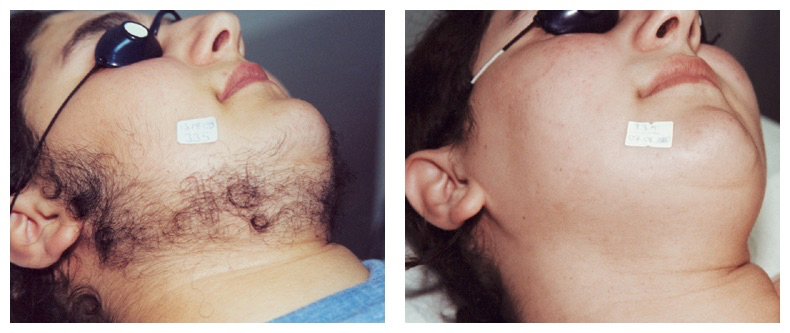Not getting the laser hair removal results you expected? Hormones could be the missing piece. But, while most patients see a 70% to 98% permanent reduction of unwanted hair, hormonal imbalances—especially related to androgens—can interfere with your results and lead to unexpected regrowth.
Hormones and Hair Growth
Hormone levels are closely connected to hair growth and loss. Androgens, in particular, are the body’s primary hair follicle regulators. These hormones can impact your hair growth after laser hair removal.
Androgens are often referred to as male hormones. But, women also have them naturally, just in smaller amounts. Women with high androgen levels, often from a condition called polycystic ovary syndrome (PCOS), can experience hirsutism. Hirsutism causes excess hair growth in women, typically in areas where men have hair (the face, chest, stomach, lower back, etc.).
How Hormones Impact Laser Hair Removal
If you have a hormonal imbalance that involves higher-than-usual androgen levels, your hair may grow back more quickly than expected after laser hair removal. Generally, patients in this scenario still notice a reduction in hair growth, but less than that of patients without a hormonal imbalance.
Undergoing Laser Hair Removal With Hirsutism
Many women with hirsutism choose laser hair removal as an effective solution for excess hair. While you may need more treatment sessions to achieve the results that you desire, laser hair removal can still help you manage unwanted hair with hirsutism.
Patients with high androgen levels may also want to consider asking their doctors about treatment options to balance their hormones before undergoing laser hair removal. By achieving hormonal balance before undergoing this hair removal method, you can achieve more dramatic and longer-lasting results.
What Results Can You Expect With a Hormonal Imbalance?
Even with a hormonal imbalance, laser hair removal can still make a big difference. Most patients see thinner regrowth, slower hair cycles, and less visible hair. However, you may need maintenance treatments every 6–12 months to manage new growth stimulated by ongoing hormonal activity.
Common Hormonal Conditions That Can Affect Laser Hair Removal
- Polycystic Ovary Syndrome (PCOS): A leading cause of hormonal imbalance in women. It raises androgen levels and often leads to thick, stubborn hair growth.
- Menopause: Hormone levels fluctuate during menopause, sometimes increasing facial hair growth.
- Thyroid Disorders: Both hypothyroidism and hyperthyroidism can affect the hair cycle and lead to inconsistent laser results.
- Adrenal Gland Disorders (e.g., Cushing’s Syndrome): These can increase cortisol and androgen production, stimulating regrowth.

Laser Affair is a trusted provider of laser hair removal services in Tampa. Contact us today to speak with one of our technicians and learn if laser hair removal is right for you!
